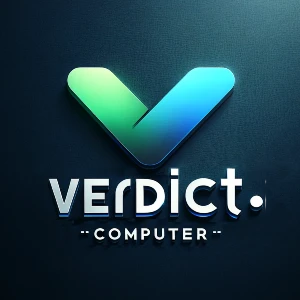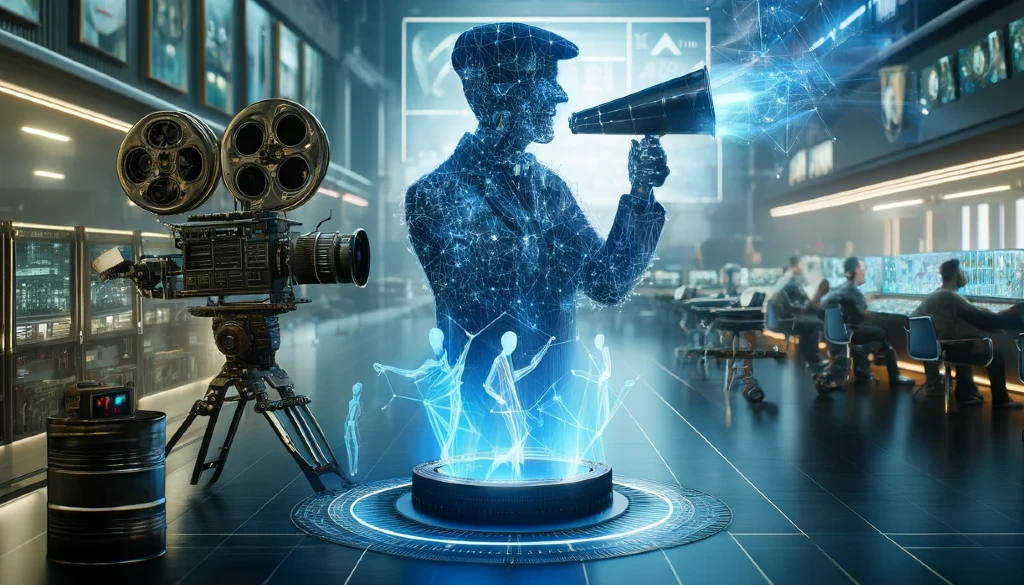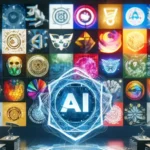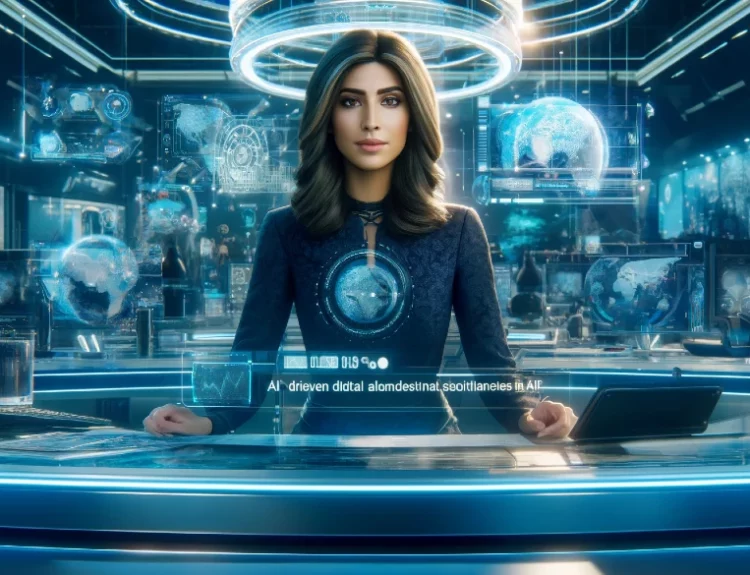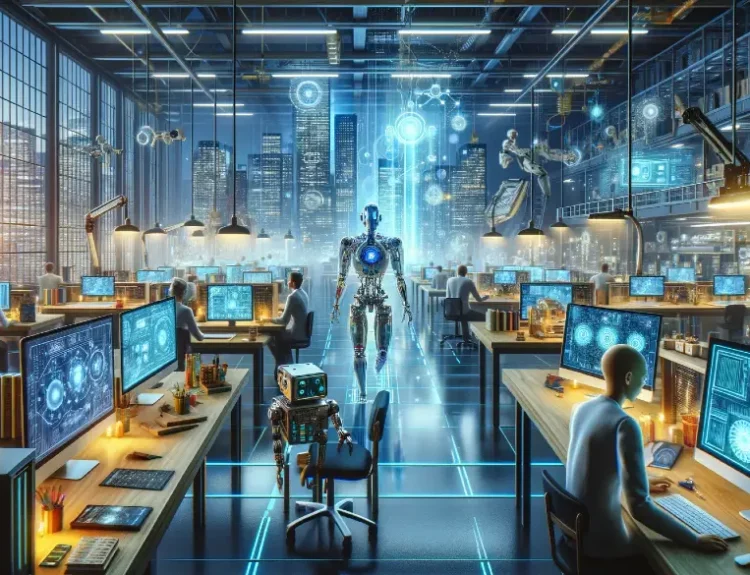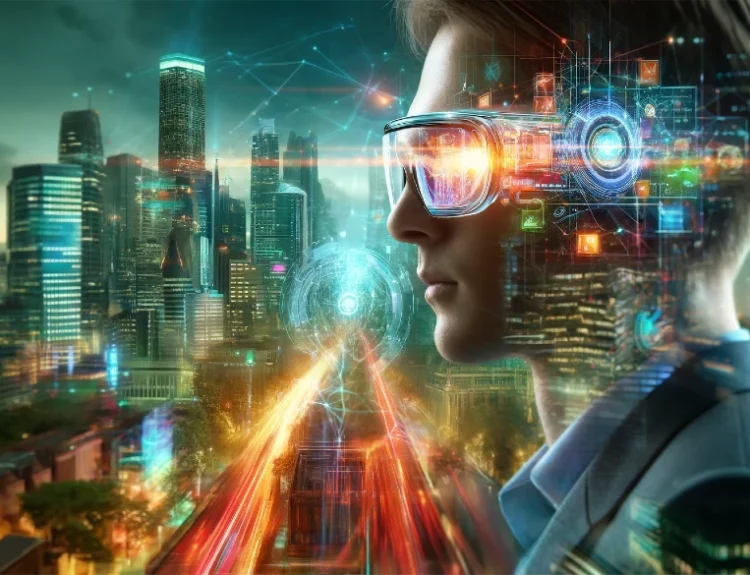Introduction
Have you ever wondered if a robot could dream? For decades, artificial intelligence (AI) has captivated us, blurring the lines between science fiction and reality. This fascination has spilled over onto the silver screen, with AI computer movies becoming a cornerstone of science fiction and beyond. From the chilling replicants of Blade Runner to the heartwarming companionship of Her, AI in film has evolved far beyond its initial portrayal as a cold, metallic plot device.
Today, AI isn’t just lighting up movie screens; it’s playing a crucial role behind the scenes as well. From analyzing scripts with complex algorithms for AI script analysis to generating groundbreaking special effects, advanced AI technology is transforming the filmmaking process. This blog dives deep into the multifaceted world of AI in cinema, exploring its impact on storytelling, technical applications, and the very future of moviemaking. So, grab some popcorn, settle in, and get ready to explore the exciting intersection of AI and the big screen!
AI in the Spotlight: A Historical Look
Long before the days of chatbots and self-driving cars, filmmakers were grappling with the concept of artificial intelligence. As early as 1927, Fritz Lang’s sci-fi masterpiece, Metropolis, introduced us to Maria, a humanoid robot who sparks a social revolution. This AI computer movie showcased the potential of AI, but also the anxieties surrounding its creation.
The portrayal of AI in film continued to evolve throughout the 20th century. Think back to the iconic HAL 9000 from 2001: A Space Odyssey, a powerful computer that turns deadly. These early depictions often presented AI as a threat, a reflection of humanity’s fear of being surpassed by its own creations.
However, the narrative began to shift with films like Blade Runner (1982) and Ex Machina (2014). These movies explored the emotional complexities of artificial beings, blurring the lines between human and machine. Artificial intelligence in film became more than just a plot device; it became a way to explore questions of identity, consciousness, and what it truly means to be human.
The Spectrum of AI’s Impact
The influence of AI on cinema extends far beyond simply portraying intelligent machines on screen. AI has become a powerful tool that’s transforming the filmmaking process itself, impacting everything from story development to the final cut.
- AI-driven storytelling: Imagine AI assistants analyzing audience demographics and movie trends to identify potential plot hooks and themes. This isn’t science fiction anymore. Studios are increasingly utilizing AI to gain data-driven insights that inform story development, potentially leading to more engaging narratives that resonate with wider audiences.
- Innovations in AI-powered filmmaking: Special effects have always been a key driver of cinematic wonder, and AI is taking them to the next level. We’re talking about hyper-realistic virtual sets created with AI, allowing filmmakers to explore fantastical worlds without the limitations of physical locations. Motion capture and animation are also getting a boost from AI, leading to more lifelike and nuanced characters.
- Future of AI in cinema: The possibilities seem endless. Imagine personalized movie experiences where AI tailors the narrative or special effects based on your preferences. Interactive films where the audience directly influences the story’s direction could become a reality thanks to AI. The future of cinema promises to be a truly immersive and interactive experience, shaped in part by the power of artificial intelligence.
From Script to Screen: AI’s Technical Applications
AI isn’t just dreaming big ideas for the future of cinema; it’s already working its magic behind the scenes throughout the filmmaking process. Let’s delve into some of the specific ways AI is being utilized:
- Pre-Production: Gone are the days of endless location scouting trips. AI-powered tools can analyze scripts and suggest suitable filming locations based on the described setting, saving time and resources. Additionally, AI algorithms can be used to analyze scripts for pacing, dialogue flow, and potential audience appeal, offering valuable insights for script revisions and development.
- Production: Step onto an AI-powered film set! Virtual set technology utilizes AI to create realistic and dynamic backgrounds, allowing filmmakers to shoot complex scenes without the limitations of physical sets. This opens doors for exploring fantastical environments or even recreating historical periods with stunning accuracy.
- Post-Production: The editing suite is no longer solely human territory. AI-powered editing software can analyze footage, identify key moments, and even suggest cuts and transitions, streamlining the editing process. AI can also be a lifesaver for color correction and visual effects, with automated tools performing tedious tasks like color grading and noise reduction, freeing up valuable time for editors and colorists to focus on the creative aspects.
These are just a few examples of how AI is transforming the filmmaking process from start to finish. Intelligent filmmaking solutions powered by AI are improving efficiency, reducing costs, and allowing filmmakers to focus on their creative vision.
AI and the Art of Cinema: Friend or Foe?
The rise of AI in filmmaking sparks a crucial conversation: is it a boon or a bane for the art of cinema? Here’s a closer look at both sides of the coin:
Enhancing Creativity with AI in Movies: Proponents of AI see it as a powerful tool that can enhance the creative process. Imagine AI algorithms analyzing vast amounts of film data to identify patterns and trends in successful storytelling. This data could then be used to generate new story ideas or suggest unexpected plot twists, sparking creativity for screenwriters and directors.
Balancing Human and Machine in Filmmaking: However, some argue that AI shouldn’t replace the human touch in filmmaking. The magic of cinema lies in its ability to evoke emotions, tell unique stories, and capture the human experience. These are all inherently human endeavors, and relying solely on AI could lead to formulaic and homogenized films.
The key lies in finding the right balance. AI applications in movie production should be seen as tools to empower filmmakers, not replace them. AI can handle repetitive tasks, freeing up human creativity to focus on storytelling, character development, and the overall artistic vision. Ultimately, a successful collaboration between human and machine holds the most promise for the future of cinema.
Conclusion
The influence of AI on cinema is undeniable. From shaping narratives to revolutionizing the filmmaking process, AI is ushering in a new era of storytelling possibilities. As AI technology continues to evolve, we can expect even more groundbreaking advancements that will push the boundaries of cinematic expression.
The future of AI is not predetermined, and you have the power to shape it! Here at Verdict, we believe in the potential of AI to become a powerful tool that benefits humanity. Our platform is designed for AI to learn and grow through real-world interactions and the collective knowledge of our community. Every search, conversation, and shared result on Verdict contributes to building a more comprehensive and human-centric AI.
Join us on this exciting journey! Explore Verdict and see how you can contribute to shaping the future of AI.
Looking for more AI insights? Head over to our blog page for a treasure trove of fascinating articles, exploring topics like “AI’s Impact on Computer Games” and “AI Computer Assistants Revolutionizing Workflows.” Stay curious, stay informed, and keep exploring the ever-evolving world of AI!
